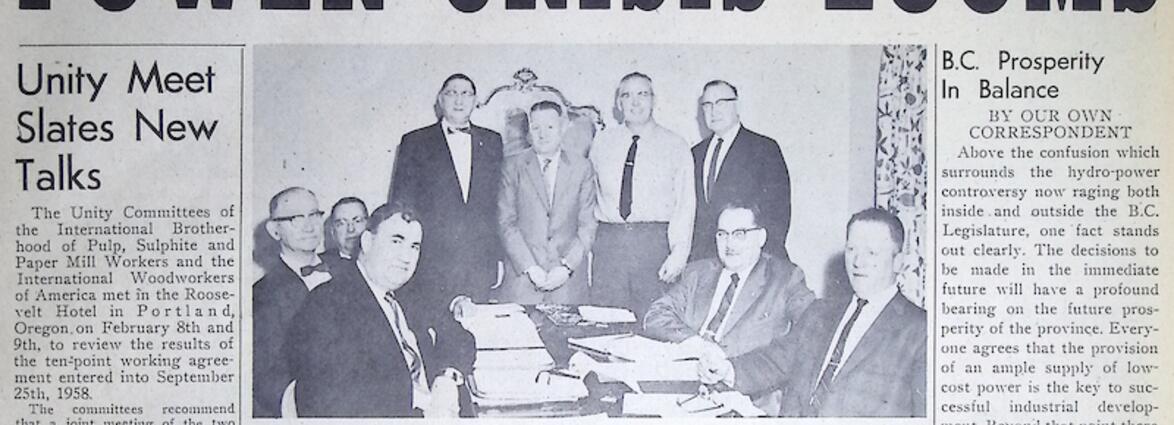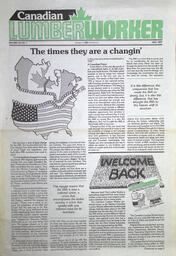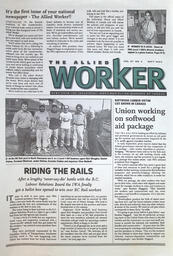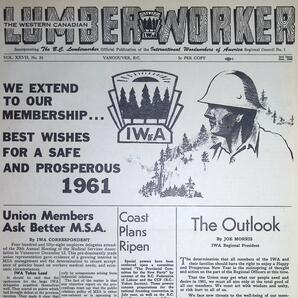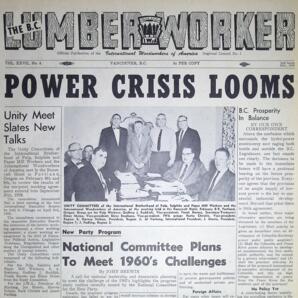The digitized B.C./Western Canadian Lumber Worker collection contains newspapers produced from 1960 to 1980 by the British Columbia District Council No. 1 and the Western Canada Regional Council No. 1 of the forestry labour union the International Woodworkers of America (I.W.A.). Founded in 1937, the International Woodworkers of America was the largest industrial labour union in Western Canada during the 1960s and 1970s. With their regional head office in downtown Vancouver, the union played a central role in the political, economic, and social fabric of British Columbia for most of the twentieth century. The B.C./Western Canadian Lumber Worker newspapers not only provide a vivid insight into the operations of this important union, but also bear testament to the trials and tribulations of the broader labour movement. The two decades in question were incredibly significant for both the I.W.A. and the labour movement more broadly. The union was arguably at its peak influence during the 1960s and early 1970s and engaged in a series of innovative and impactful campaigns dedicated to enhancing industry environmental and pollution regulations, and to combating racial prejudice in the workplace and society. During these years, the I.W.A. was also a participant in both the Vancouver Committee to End the War in Vietnam, as well as a strong supporter of Green Peace’s “Don’t Make a Wave” anti-nuclear weapons campaign. The second half of the 1970s were equally significant, as challenging economic conditions and the early onset of neoliberal socio-political adjustments prompted radical industrial action from the union, but also marked the beginning of the labour movement’s drastic decline in influence. Initially produced under the British Columbia District Council No. 1, the newspaper was titled the B.C. Lumber Worker. However, in 1960, the British Columbia District Council No. 1 took over administration of the western provinces and changed their title accordingly to the Western Canada Regional Council No. 1. This resulted in the newspaper undergoing a similar change in name, becoming the Western Canadian Lumber Worker. This project is generously supported by the University of British Columbia's Irving K. Barber Learning Centre, through its British Columbia History Digitization Program. For research inquiries, please contact kaatzaarchives(at)shaw.ca.

